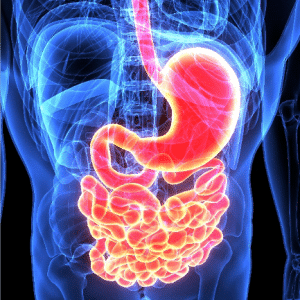What Are The Long-Term Side-Effects of Chemotherapy?
 Chemotherapy is a powerful and commonly used treatment for cancer, but it can have a range of long-term side effects, which can vary depending on the type of chemotherapy drugs used, the dosage, the duration of treatment, and the individual patient’s response. Some common long-term side effects of chemotherapy include:
Chemotherapy is a powerful and commonly used treatment for cancer, but it can have a range of long-term side effects, which can vary depending on the type of chemotherapy drugs used, the dosage, the duration of treatment, and the individual patient’s response. Some common long-term side effects of chemotherapy include:
 Cognitive Changes: Some patients report problems with memory, concentration, and cognitive function after chemotherapy, a condition often referred to as “chemo brain” or “chemo fog.” These cognitive changes can persist for months or even years after treatment.
Cognitive Changes: Some patients report problems with memory, concentration, and cognitive function after chemotherapy, a condition often referred to as “chemo brain” or “chemo fog.” These cognitive changes can persist for months or even years after treatment.
 Fatigue: Many cancer survivors experience persistent fatigue, which can significantly affect their quality of life. This fatigue may be related to the physical and emotional stress of cancer treatment.
Fatigue: Many cancer survivors experience persistent fatigue, which can significantly affect their quality of life. This fatigue may be related to the physical and emotional stress of cancer treatment.
Peripheral Neuropathy: Chemotherapy-induced peripheral neuropathy (CIPN) can cause numbness, tingling, and pain in the hands and feet. In severe cases, it can lead to difficulties with fine motor skills and balance.
 Heart Problems: Certain chemotherapy drugs, such as anthracyclines, can damage the heart, leading to conditions like cardiomyopathy or heart failure. These effects may not become apparent until years after treatment.
Heart Problems: Certain chemotherapy drugs, such as anthracyclines, can damage the heart, leading to conditions like cardiomyopathy or heart failure. These effects may not become apparent until years after treatment.
Infertility: Chemotherapy can cause temporary or permanent infertility in both men and women. Fertility preservation options should be discussed with patients before treatment begins if desired.

Secondary Cancers: Some chemotherapy drugs can increase the risk of developing secondary cancers later in life. This risk varies depending on the specific drugs used.

Lung Problems: Lung damage and pulmonary fibrosis can occur as a result of certain chemotherapy drugs or radiation therapy to the chest.
Kidney and Liver Problems: Certain chemotherapy drugs can affect the kidneys and liver, potentially leading to long-term issues with these organs.
Changes in Blood Counts: Some chemotherapy drugs can have lasting effects on blood cell counts, potentially leading to anemia, thrombocytopenia, or leukopenia.


